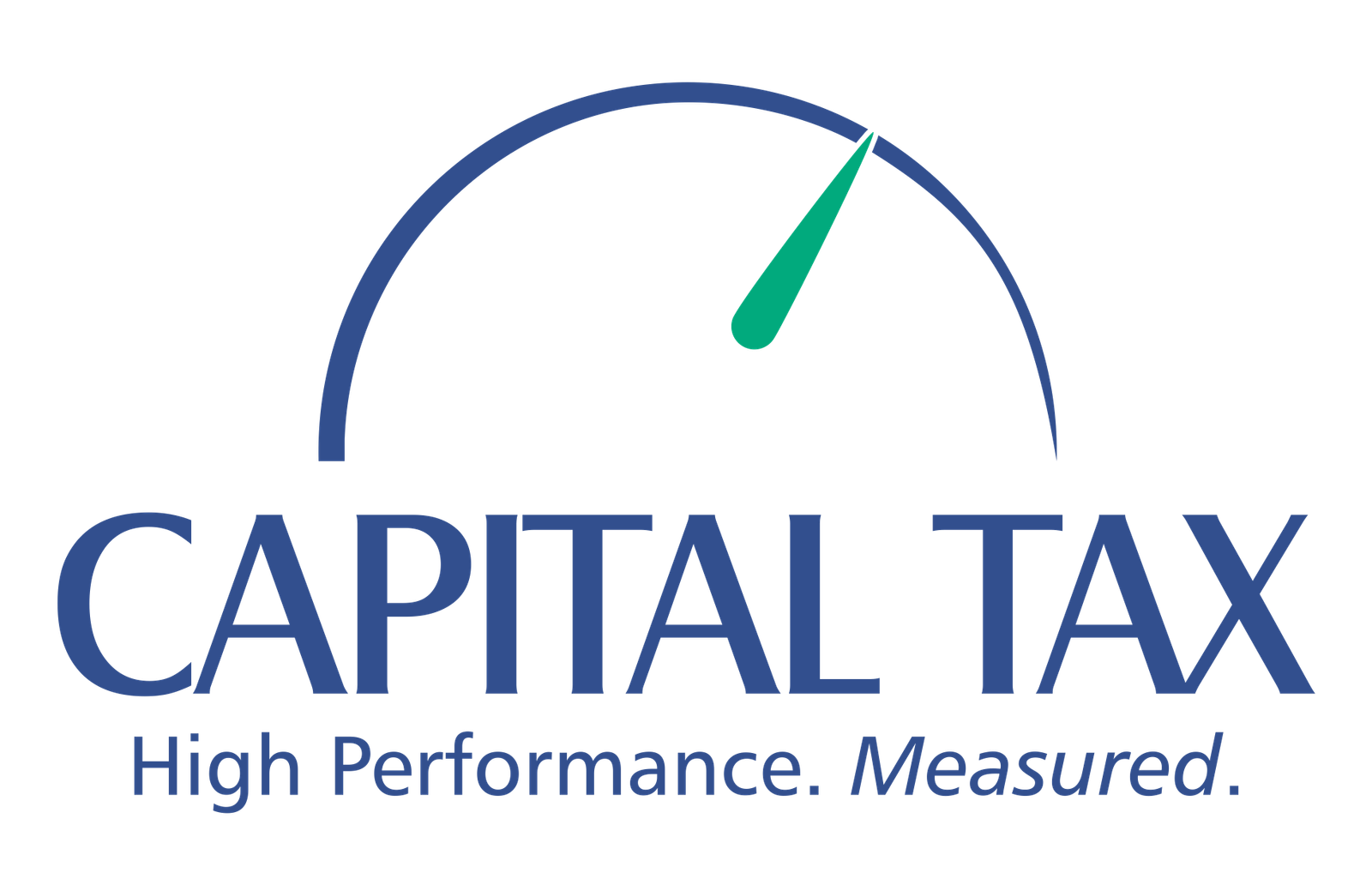Tax season can be a rollercoaster: a ride filled with twists and turns, but for Californians, navigating through tax preparation doesn’t have to feel like a wild adventure. This guide unveils the secrets to efficient and effective tax prep, ensuring you glide through the process smoothly. Say goodbye to last-minute scrambles and stress-induced headaches. From maximizing deductions to understanding state-specific regulations, this comprehensive resource will equip you with all the tools needed to master your taxes like a pro. Get ready to transform tax time from chaos into clarity as we demystify the complexities of filing taxes in California.
Understanding California’s Tax System
Separate Systems
California operates its own tax system, distinct from the federal one. This separate structure encompasses income taxes, sales taxes, and property taxes. Knowing these differences is key to successful tax preparation.
Understanding California’s unique tax system helps individuals navigate the various types of taxes they are subject to in the state. For instance, grasping how income taxes work in California compared to federal income tax can lead to more accurate filings.
Income Taxes Overview
Income taxes in California follow a progressive rate that ranges from 1% to 13.3%. Being aware of this bracket system ensures taxpayers correctly calculate their owed amount and avoid under or overpayment.
Property Taxes Breakdown Property taxes in California are based on a property’s assessed value at a rate of approximately 1%. Familiarity with these rates enables homeowners to budget effectively for their annual property tax payments.
Sales Taxes Insight Sales tax rates vary by location within California but generally range between 7.25% and 10.25%. Understanding these fluctuations aids consumers in predicting their overall expenses when making purchases statewide.
Tax Filing Status Guide For Californians
Importance Of Choosing The Right Filing Status
Choosing the correct filing status is crucial for Californians when preparing their taxes. Your filing status determines your tax rate, eligibility for certain credits, and deductions you can claim. For instance, if you are married, filing jointly might be more beneficial than separately to maximize your tax benefits. Single individuals or those who qualify as head of household have different tax brackets and standard deduction amounts compared to married couples.
Understanding the implications of each tax filing status helps ensure accurate tax preparation. It’s essential to review all options available under California’s tax system before making a decision. By selecting the most suitable filing status based on your circumstances, you can potentially lower your tax liability and take advantage of deductions that apply specifically to your situation.
Common Tax Filing Statuses In California
In California, taxpayers typically fall into one of five main filing statuses: single, married filing jointly, married filing separately, head of household, and qualifying widow(er) with dependent child. Each status has its own set of rules regarding income thresholds and eligibility requirements that determine how much you owe in taxes or how much refund you may receive.
Here are some key points about each tax filing status:
-
Single: Individuals who are not married or legally separated by December 31st can file as single.
-
Married Filing Jointly: Spouses can choose this option to combine their incomes and deductions on one tax return.
-
Married Filing Separately: Some couples opt for separate filings due to specific financial situations; however, it might lead to higher taxes in some cases.
-
Head Of Household: This status applies if you are unmarried but provide a home for a qualifying dependent like a child or relative.
-
Qualifying Widow(er) With Dependent Child: Widows/widowers with dependent children may use this status within two years after their spouse’s death.
Differences Between Federal And California Tax Laws
Variances In Deductions And Credits
Federal and California tax laws exhibit both similarities and differences. While some deductions or credits allowed at the federal level might not apply in California, the state also offers its own set of unique tax breaks. For instance, certain deductions for federal taxes, such as student loan interest deduction, may not be available when filing your California state taxes.
Understanding these distinctions is crucial for effective tax preparation. By acknowledging the variations between federal and Californian tax laws, you can optimize your tax strategy to ensure maximum savings while staying compliant with both systems.
Navigating Complexities
One significant difference lies in how income is taxed at each level – federal taxation differs from that of the state of California. This variation can impact which deductions you are eligible for or how much you owe in taxes overall. For example, while mortgage interest deductions are permitted on both federal and Californian returns, limitations may vary between the two.
Moreover, federal law allows a standard deduction amount that applies uniformly across all states; however,California has its own standard deduction rates that differ from the federal amounts. Being mindful of these nuances will empower you to make informed decisions regarding your finances during tax season.
Efficient Tax Return Filing Strategies
Electronic Filing Methods
Electronic filing expedites the processing of your tax return. It’s a quick and secure way to submit your documents. By e-filing, you can receive any refunds faster than traditional paper filing methods. Plus, it reduces the risk of errors commonly found in manually filled forms.
Utilizing electronic methods for tax returns is efficient. Here are some advantages:
-
Faster processing times
-
Reduced error rates
-
Quicker refund disbursement
Organizing Financial Documents
Organizing financial documents throughout the year streamlines the tax preparation process. Keep all relevant papers in one place so that when it’s time to file taxes, everything is readily available. This approach helps prevent last-minute scrambling and ensures that you don’t miss out on any deductions or credits.
Maintaining organized financial records has its perks:
-
Saves time during tax season
-
Helps identify potential deductions easily
-
Reduces stress associated with gathering paperwork
Professional Consultation And Tax Software
Consulting a professional or using tax software can optimize your filing strategy. Professionals provide expert advice tailored to your specific situation, ensuring you maximize deductions and minimize liabilities. On the other hand, tax software simplifies calculations and guides you through the process step by step.
Consider these benefits of seeking professional help or using tax software:
-
Expert guidance tailored to individual circumstances.
-
Simplified calculations and step-by-step guidance.
-
Maximization of deductions while minimizing liabilities.
Common Tax Preparation Errors To Avoid
Math Errors
When preparing your taxes, be cautious with calculations. Math errors can lead to discrepancies in your return. Always double-check numbers and calculations to ensure accuracy.
Making mistakes in math might result in incorrect tax amounts owed or refunds due. Utilize a calculator or tax software to prevent these errors from occurring.
Reporting Income Sources
Forgetting to report all sources of income is a significant mistake that can have severe consequences. Incorrect Social Security numbers or missing signatures are common issues too.
It’s crucial to include all income streams, such as wages, freelance work, investments, and rental properties. Failing to do so could trigger penalties from the IRS.
Maximizing Savings With Special Credits And Deductions
Explore California-Specific Benefits
California taxpayers have access to a range of special credits and deductions that can significantly impact their tax savings. By researching these unique benefits, you can uncover opportunities to reduce your tax liability further. For instance, expenses related to education, such as tuition fees or student loan interest, could make you eligible for specific credits. If you’ve made energy-efficient improvements to your home, such as installing solar panels or upgrading insulation, you might qualify for deductions.
Taking the time to understand the California-specific benefits available can lead to substantial savings on your taxes. Child care costs are another area where Californians may find opportunities for tax relief through various credits and deductions. By delving into these provisions tailored for residents of the state, you can optimize your tax preparation strategy and potentially keep more money in your pocket.
Leverage Special Provisions Wisely
When preparing your taxes in California, it’s crucial to leverage special provisions wisely to maximize savings effectively. For example:
-
Education-Related Expenses: Ensure that you have gathered all relevant receipts and documentation for educational expenses incurred during the year.
-
Energy-Efficient Home Improvements: Keep records of any home upgrades that enhance energy efficiency as they could make you eligible for valuable deductions.
-
Child Care Costs: Document all child care expenditures accurately so that you can claim applicable credits during tax preparation.
Requirements And Essential Information For 2022 Tax Preparation
Stay Updated
Staying informed about any changes in tax laws or regulations is crucial for efficient tax preparation. For instance, alterations to deduction limits or new credits can impact your tax return significantly. Consider subscribing to IRS newsletters or following reputable financial websites for updates.
-
Being aware of changes helps you take advantage of new opportunities.
-
Regularly checking for updates ensures compliance with the latest regulations.
Gather Documents
Collecting all essential documents like W-2s, 1099s, and receipts is vital. These forms provide information necessary for accurately filing your taxes. Without them, you might miss out on eligible deductions or credits that could lower your taxable income.
-
Having all documents ready streamlines the filing process.
-
Missing paperwork can lead to delays and potential errors in your return.
Know Deadlines
Understanding important deadlines and filing requirements is key to avoiding penalties. Filing late can result in fines or interest charges on unpaid taxes. Marking these dates on a calendar and setting reminders can help ensure timely submission of your tax return.
-
Set up alerts on your phone or computer to remind you of approaching deadlines.
-
Make note of both federal and state-specific due dates to avoid any oversights.
IRS Free Guided Tax Prep For Californians
Free IRS Assistance Programs
The IRS provides free tax preparation help for eligible California residents through programs like Volunteer Income Tax Assistance (VITA) and Tax Counseling for the Elderly (TCE). These initiatives offer guidance and support, ensuring accurate tax filings. Utilizing these resources can lead to efficient and effective tax preparation.
Utilize the VITA program if you earn $58,000 or less annually, have disabilities, or speak limited English. TCE is tailored for individuals aged 60 and older, specializing in retirement-related tax issues. Both services are staffed by trained volunteers who ensure your taxes are prepared correctly.
Benefits Of Using IRS Resources
By leveraging the IRS assistance programs, Californians can access professional help at no cost. This ensures that your taxes are filed accurately while maximizing potential refunds. Moreover, utilizing these resources saves time and reduces stress associated with navigating complex tax laws.
Pros:
-
Accurate tax preparation
-
Access to professional guidance
-
Maximized refunds
Cons:
-
Limited eligibility criteria
How To Get Started
To begin using the VITA or TCE programs in California:
-
Locate a nearby VITA/TCE site by visiting the IRS website.
-
Schedule an appointment for personalized assistance.
-
Gather all necessary documents before your appointment date.
Follow these steps to ensure a smooth experience when seeking free tax preparation help from the IRS.
Rights And Responsibilities Of California Taxpayers
Taxpayer Rights
As a Californian taxpayer, you are entitled to certain rights when interacting with the state’s tax authorities. These rights include the right to quality service, confidentiality, a fair and just tax system, as well as the right to appeal decisions made by the tax authorities. For instance, if you believe that your taxes were calculated incorrectly or have concerns about your audit results, you have the right to challenge these findings through an appeals process.
Understanding your taxpayer rights is crucial for ensuring that you are treated fairly and equitably throughout the tax preparation process. By being aware of these rights, you can advocate for yourself effectively in case of any disputes or discrepancies with your taxes. Moreover, knowing your rights empowers you to engage confidently with tax authorities and seek assistance when needed.
Taxpayer Responsibilities
On the flip side, it is essential for California taxpayers to recognize their responsibilities. One primary responsibility is accurately reporting all sources of income earned throughout the year. This includes wages from employment, self-employment income, rental earnings, dividends from investments, and any other forms of income received.
Another critical responsibility is ensuring that you pay the correct amount of taxes owed based on your income level and deductions claimed. Failing to fulfill this obligation can lead to penalties and interest charges imposed by the state’s tax authority. Therefore, staying informed about changes in tax laws and regulations can help you meet your responsibilities as a taxpayer in California effectively.
Closing Thoughts
You’ve now equipped yourselves with the knowledge needed to navigate California’s tax landscape efficiently. Remember, understanding your tax filing status, recognizing the differences between federal and state laws, and implementing smart filing strategies are crucial steps. By avoiding common errors and maximizing savings through credits and deductions, you’ll be well on your way to a successful tax season in 2022. Make use of the IRS Free Guided Tax Prep for Californians and understand your rights and responsibilities as a taxpayer to ensure a smooth process.
Take charge of your tax preparation journey and put these insights into action. Stay informed, stay proactive, and watch how your efforts translate into financial benefits. Here’s to a stress-free tax season ahead!
Frequently Asked Questions
1. What Are Some Common Tax Preparation Errors Californians Should Avoid?
To ensure efficient tax preparation, avoid errors like incorrect filing status, math mistakes, missing deductions or credits, and forgetting to sign the return. Double-check all information before submission to prevent delays or penalties.
2. How Can Californians Maximize Savings On Their Taxes Using Special Credits And Deductions?
Californians can maximize savings by taking advantage of state-specific credits like the California Earned Income Tax Credit (CalEITC) and deductions such as mortgage interest deductions. Thoroughly review available options to optimize tax savings based on individual circumstances.
3. What Essential Information Do Californians Need For 2022 Tax Preparation?
For 2022 tax preparation in California, individuals will require documents like W-2 forms, investment statements, receipts for deductible expenses, Social Security numbers for all dependents, and any relevant IRS correspondence. Organize these materials beforehand to streamline the filing process.
4. Can Californians Access Free Guided Tax Prep Services From The IRS?
Yes! The IRS offers free guided tax prep services specifically tailored for Californians. This service assists with understanding complex tax laws and ensures accurate completion of returns. Take advantage of this resource to navigate your taxes effectively without incurring additional costs.
5. What Rights And Responsibilities Do California Taxpayers Have When It Comes To Taxes?
California taxpayers have rights such as confidentiality of personal information and representation during audits or appeals. Responsibilities include timely filing accurate returns, paying owed taxes promptly, keeping records organized for future reference, and reporting any changes in circumstances that may affect taxes accurately.

Tax Preparation For Individuals In California?
Discover tailored solutions at Capital Tax, where we specialize in Tax Preparation for Individuals in California. Our services are designed to provide comprehensive tax strategies and management tailored to the unique needs of California residents. The complexities of state and federal tax laws can be daunting, but with our experienced team, you can concentrate on your personal and professional life while we take care of the intricacies of your tax preparation needs. Schedule a consultation with us, and let us guide you towards a future of tax efficiency and optimization. Don’t let the challenges of tax preparation affect your financial health; enhance your tax strategy with our expert advice!
Disclaimer
The content on this website is for informational and entertainment purposes only and should not be seen as accounting advice. It’s advisable to consult with a qualified accountant or accounting firm for advice specific to your financial situation. Do not base your actions solely on the information provided here without seeking expert advice. The information on this website may not always reflect the latest in accounting practices and regulations. We are not liable for any actions taken or not taken based on the site’s content, to the maximum extent permitted by law.




